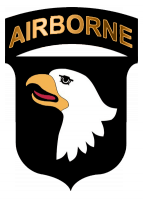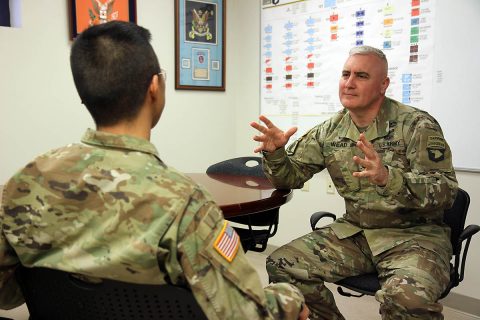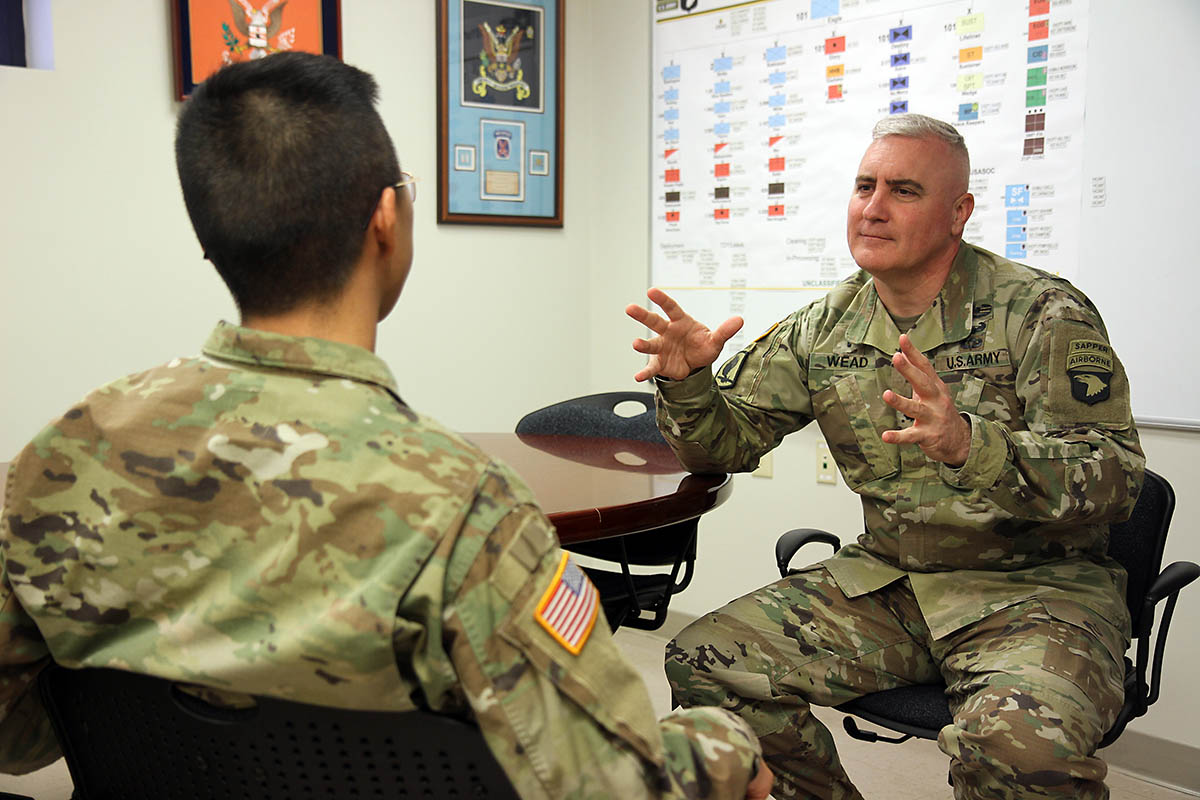Written by Pfc. Lynnwood Thomas
40th Public Affairs Detachment
 Fort Campbell, KY – An Army chaplain’s primary mission is to provide spiritual support and guarantee free religious expression in the military.
Fort Campbell, KY – An Army chaplain’s primary mission is to provide spiritual support and guarantee free religious expression in the military.
However, chaplains also offer a variety of quality of life counseling to Soldiers and their Families including relationship building, premarital and marriage counseling, ethics training, financial management and suicide prevention.
Sergeant Alonzo Johnson, religious affairs specialist, Headquarters and Headquarters Battalion, 101st Airborne Division sought out his chaplain’s counsel before he and his wife were married.

A year after his nuptials, Johnson continues to seek guidance from his chaplain.
“He gave me and my wife a few tools before we got married to know if we were the right ones for each other,” Johnson said. “Just two months ago we did Strong Bonds [relationship building] training in the Smoky Mountains. We went to a resort out there and had some good couple’s training.”
To be qualified to provide counsel to Soldiers as well as commanders, each chaplain must have a master’s degree at minimum.
“[There are] 22 Army ethicists across the Army – they’re all chaplains,” said Chaplain Lt. Col. Sean Wead, acting division chaplain, 101st Airborne Division. “The Army sent me to Princeton to become an ethics expert, and I taught ethics for three years at the Command and General Staff College.”
Chaplains are involved in various installation working groups that come together monthly. These working groups allow the chaplain to help the command identify issues trending with Soldiers and assist in selecting the right initiatives to address those issues.
“One month maybe [chaplains are] doing most of their counseling on marriage and communication, and other times it might be on religious accommodations,” said Tiffany Simms, integrator at Fort Campbell’s Community Ready and Resilient Office. “They help us understand what they’re seeing Soldiers for so that we can focus our efforts better. Of course they don’t give away personally identifiable information.”
In addition to their religious credentials, Soldiers in the Army Chaplain Corps have many backgrounds in other Army careers.
“I was a former infantry Soldier, and 30 years ago I was in Bravo Company, 2nd [Battalion] of the 502nd [Infantry Regiment] which is still here. That is where I got my sergeant stripes,” Wead said. “You’ll have chaplains who were Special Forces. I served with a chaplain who was a Ranger instructor for 12 years.”
Chaplains believe all people are made in the image of God, Wead said. No matter the race, religion or sexual orientation, every Soldier has value because they are in God’s image. This belief makes the members of the Army Chaplain Corps servants to all Soldiers.
“We look out for the general welfare of the Soldiers,” Wead said.



